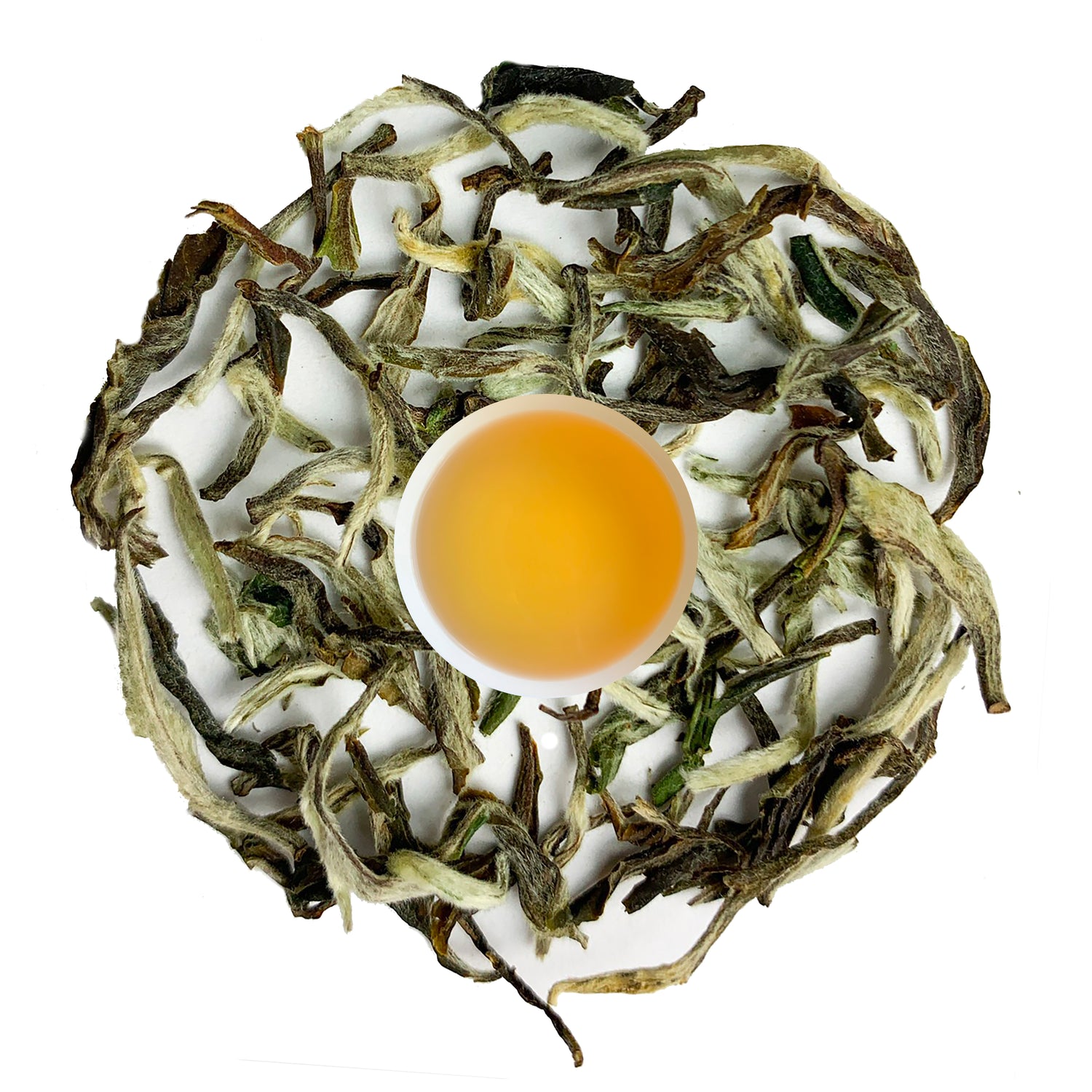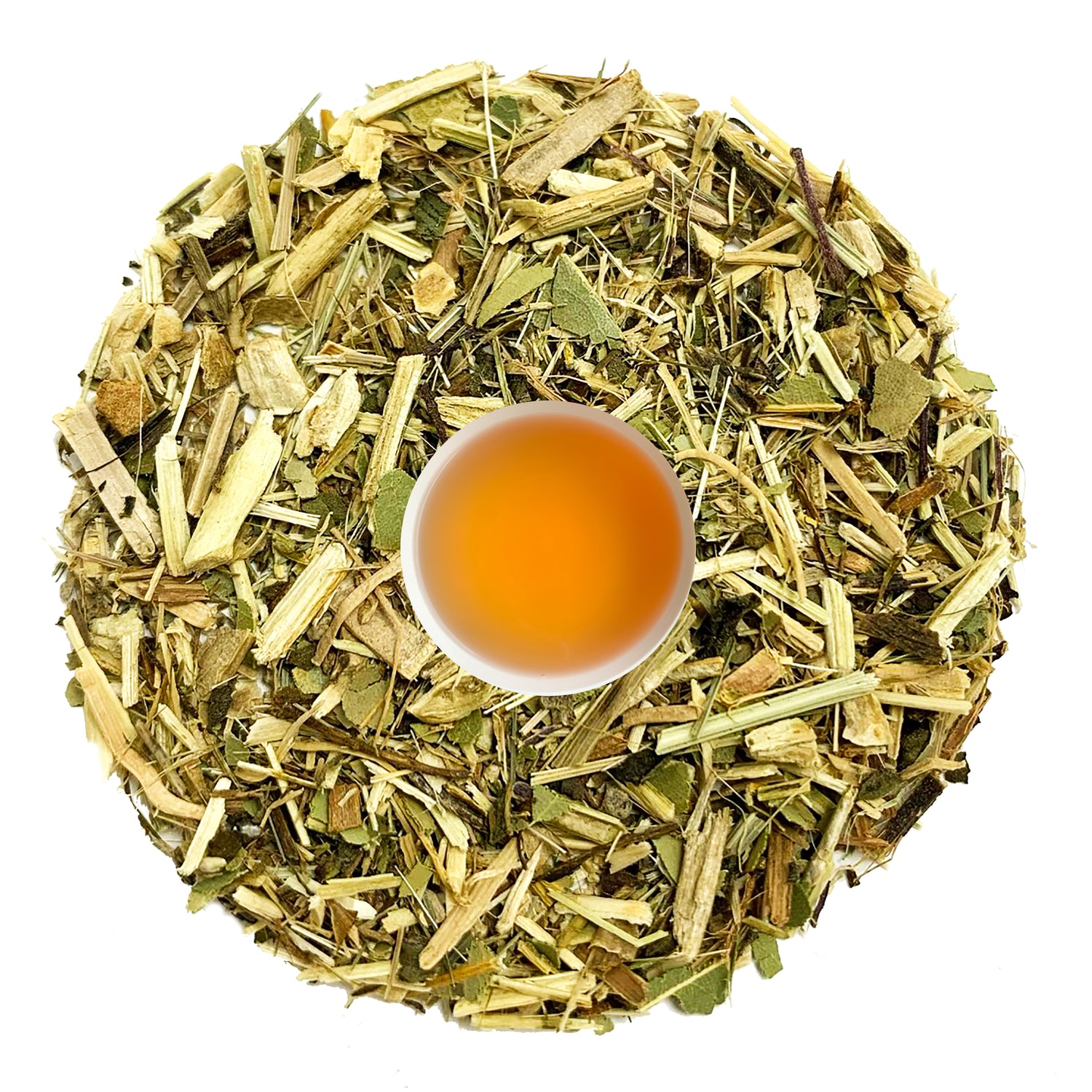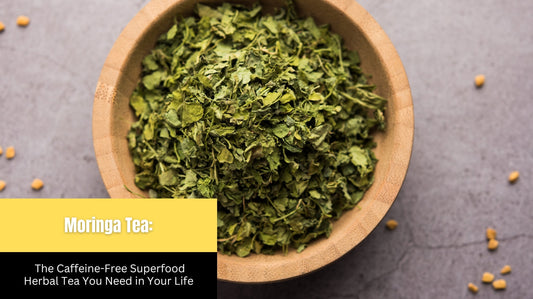
Does Chai Have Caffeine? A Complete Guide to Caffeine Levels
Curious about the caffeine levels in your favorite chai? Many tea lovers wonder, "Does chai have caffeine?" The short answer is yes, it does. However, the amount is often much lower than you might think. Understanding the caffeine in your cup of chai tea can help you make informed choices about your daily consumption, especially if you're looking to manage stress or simply curious about what you’re drinking.
Let’s dive into the details, from the primary sources of caffeine to how your brewing method can change the final result, consider visiting chai tea caffeine levels.
How Much Caffeine Is in Chai Tea?

The caffeine content in chai tea can vary based on several factors, including the type of spice mix used and any additional ingredients like vanilla or added sugar. Different chai varieties may hold distinct caffeine levels, while the brewing time can significantly impact the final caffeinated result. Understanding how each ingredient influences caffeine levels helps in making informed choices for better digestion and overall tea enjoyment. Many consumers wonder does chai have caffeine, which plays a role in their decision-making process.
Factors That Affect Caffeine Levels in Chai Tea
The final amount of caffeine in your cup is not set in stone. Here’s what can influence the caffeine content:
- Type of Tea Leaves: The base tea is the main source of caffeine. Traditional chai uses black tea, but modern recipes might use green or even decaffeinated black tea, which would significantly reduce the caffeine.
- Brewing Time: The longer you steep your chai, the more caffeine is extracted from the leaves. A short steep (3-4 minutes) will yield a lower caffeine level, while a longer steep (5-7 minutes) will result in a more caffeinated and stronger-tasting tea.
- The Role of Added Ingredients: The spices themselves—like cinnamon ginger cardamom—do not contain caffeine. However, ingredients like milk and sugar can alter the overall experience, and in the case of milk, may slow down the body's absorption of caffeine.
- Traditional vs. Modern Recipes: Traditional recipes typically use loose leaf black tea, giving you more control over the caffeine extraction. Modern versions, like many popular chai latte concentrates, are pre-brewed and have a standardized caffeine level, so the amount of caffeine varies depending on the brand.
Does Chai Tea Contain Caffeine?

Chai tea does contain caffeine, primarily sourced from the base tea, which can be black or green. The addition of spices like anise can influence caffeine absorption, impacting aspects like heart rate and stomach sensitivity. Traditional recipes often differ from modern variations, leading to different caffeine levels and effects like headache or potential benefits for weight loss. Each aspect plays a role in how black tea affects individuals.
Understanding Caffeine in a Cup of Chai Tea
The caffeine content in chai tea is primarily determined by its base ingredient: black tea. Traditional chai, also known as masala chai, is made with a strong black tea base, which naturally contains caffeine. A typical 8-ounce cup of chai tea contains anywhere from 30 to 70 milligrams of caffeine.
This amount varies depending on several key factors, including the type of tea used and how you prepare it. The famous chai latte, which is made with a chai concentrate, can also have a significant amount of caffeine.
Impact of Tea and Spices on Caffeine Levels
The type of tea used in chai significantly influences its caffeine content and overall effects on alertness. For example, black tea leaves typically contain higher caffeine levels compared to green, enhancing the beverage's stimulating properties. Additionally, the presence of tannins and polyphenols from the tea and spices can modify how caffeine is absorbed, affecting how individuals experience its energizing effects.
Differences Between Traditional and Modern Chai Recipes
Traditional chai recipes often use a simple ratio of black tea to spices, with ingredients like clove and ginger adding depth to the flavor, while modern versions may incorporate syrup for sweetness and convenience. This difference can impact caffeine levels; some modern recipes also use decaffeinated black tea, allowing those sensitive to caffeine to enjoy a similar taste without the jitters. Overall, understanding these variations helps chai lovers find the perfect blend that suits their taste and caffeine preferences.
How Chai Tea Stacks Up Against Other Beverages

When you compare chai tea's caffeine to other popular drinks, you can see why it’s a popular choice for those who want an energy boost without the jitters.
- Chai vs. Coffee: A standard 8-ounce cup of coffee contains about 95 mg of caffeine, significantly more than a cup of chai tea. This makes chai a great coffee substitute if you’re looking for a gentler, more sustained energy boost.
- Chai vs. Black Tea: Since chai's base is black tea, the caffeine content is similar. However, the addition of milk and other ingredients in a chai latte can sometimes lead to a slightly lower caffeine absorption rate.
- Chai vs. Green Tea: An 8-ounce cup of green tea typically contains 20-45 mg of caffeine, which is on the lower end of the chai caffeine spectrum. This makes green tea a good option if you want even less caffeine than what's in chai.
- Chai vs. Herbal Tea: True herbal teas like chamomile and peppermint are naturally caffeine-free. If you want a drink with no caffeine at all, these are the best options.
Comparing Caffeine Content With Coffee and Green Tea
When comparing the caffeine content of chai tea with coffee and green tea, it's clear that each beverage has its own unique profile. Typically, an eight-ounce cup of chai contains about 40-70 milligrams of caffeine, less than the 95 milligrams found in an average cup of coffee, but comparable to the 20-45 milligrams in green tea. This variation can be influenced by the ingredients used, especially when adding spice mix that enhance chai’s health benefits, making it a flavorful option for those mindful of their caffeine intake and its effects on blood pressure.
Evaluating Caffeine Levels in Herbal Teas
When it comes to herbal teas, the caffeine content tends to be significantly lower or even non-existent compared to chai tea. Varieties such as chamomile, peppermint, and rooibos are naturally caffeine-free, making them excellent choices for those looking to cut back on caffeine while still enjoying a warm, flavorful beverage. Understanding these differences can help tea drinkers find the right herbal options that suit their preferences, especially if they’re aiming for a relaxing evening without the stimulating effects that decaffeination or other caffeinated beverages may bring.
What Affects Caffeine Content in Chai Tea?

What Affects Caffeine Content in Chai Tea?
Several factors influence the caffeine content in chai tea, starting with brewing techniques, which can significantly affect caffeine extraction. Variations in tea leaves, such as choosing black tea or green, also play a crucial role in determining caffeine levels. Additionally, added ingredients like milk and sugar can modify the overall experience and perception of caffeine, offering practical insights for tea drinkers.
The Influence of Brewing Techniques
The influence of brewing techniques on caffeine content in chai tea is notable, as the temperature and duration of steeping can greatly affect caffeine extraction. For instance, a longer brewing time often leads to higher caffeine levels, which may be a key consideration for those sensitive to caffeine. By experimenting with steeping methods, chai drinkers can tailor their experience to find the perfect balance that suits their spice mix and energy needs.
Variations in Tea Leaves and Their Caffeine Levels
Different tea leaves bring varying caffeine levels to chai tea, mainly because of the type of tea chosen. Black tea generally contains more caffeine than green tea, making it a common base for traditional chai recipes. For those drinking chai for its flavor without a high caffeine kick, opting for a masala chai base or blending in spices with caffeine-modulating effects can offer a gentler experience.
The Effect of Added Ingredients Like Milk and Sugar
The addition of ingredients like milk and sugar can influence the overall experience of chai tea, including its caffeine impact. Milk can soften the tea's flavor and may lead to a perception of lower caffeine intensity, even if the actual amount remains unchanged. On the other hand, adding sugar doesn't affect caffeine levels but can enhance the overall taste, making it more enjoyable for those who prefer a sweeter beverage.
Health Considerations of Caffeine in Chai Tea

Understanding recommended daily caffeine limits is essential for anyone enjoying chai tea. While moderate caffeine intake can offer benefits, like improved focus and increased metabolism, excessive consumption may lead to risks such as anxiety or insomnia. This section will explore both the positive impacts of chai's moderate caffeine levels and the potential drawbacks of overindulgence, providing valuable insights for tea lovers.
Understanding Recommended Daily Caffeine Limits
Understanding recommended daily caffeine limits is key for anyone who enjoys chai tea. Most health experts suggest a limit of around 400 milligrams of caffeine per day for most adults, which translates to about four 8-ounce cups of brewed chai. For those sensitive to caffeine, keeping track of intake can help avoid issues like jitters or sleep disturbances, making it easier to enjoy this flavorful beverage without adverse effects.
Benefits of Moderate Caffeine Intake Through Chai Tea
Moderate caffeine intake through chai tea offers several benefits that can enhance daily life. For many, this flavorful beverage can improve focus and concentration, helping tea lovers stay alert without the jitters often associated with coffee. Additionally, the unique blend of spices in chai contributes to overall well-being, promoting digestion and providing a comforting experience, making it a go-to choice for those who appreciate both taste and health benefits.
Potential Risks Associated With High Caffeine Consumption
High caffeine consumption can lead to several risks that tea drinkers may not be aware of. Consuming too much caffeine from chai tea can cause anxiety, insomnia, or even an increased heart rate, especially in individuals who are sensitive to caffeine. Staying mindful of one’s caffeine intake can help prevent these potential issues, allowing chai enthusiasts to enjoy their favorite beverage without adverse effects.
Key Takeaways on Caffeine in Chai Tea

Key Takeaways on Caffeine in Chai Tea
This section recaps essential insights into caffeine content in chai tea, helping readers understand how to choose the right chai for their desired caffeine levels. It also offers resources for further exploration on chai and caffeine, ensuring tea enthusiasts can make informed decisions. These practical insights aim to enhance the overall chai experience.
Recap of Caffeine Content Insights
Understanding the caffeine content in chai tea is essential for those looking to balance flavor with the effects of caffeine on their body. Generally, an eight-ounce cup of chai contains about 40-70 milligrams of caffeine, which is lower than coffee but comparable to green tea. This knowledge allows tea drinkers to make informed choices based on their caffeine tolerance and preferences, ensuring a satisfying chai experience without unwanted jitters.
How to Choose Chai for Desired Caffeine Levels
When selecting chai for desired caffeine levels, it's essential to consider the base tea type. For those wanting a milder caffeine hit, opting for chai made with green tea can be a great choice, as it typically contains less caffeine than traditional black tea-based chai. Additionally, adjusting the brewing time can affect caffeine extraction; a shorter steep can yield a smoother experience with less caffeine, making it easier for those sensitive to its effects.
Resources for Further Exploration on Chai and Caffeine
For those keen on deepening their understanding of caffeine levels in chai tea, there are plenty of resources available. Books on tea culture often provide insights into brewing techniques and variations in caffeine content across different chai recipes. Additionally, reputable tea blogs and online forums can offer personal experiences and tips on selecting chai based on individual caffeine sensitivity, helping tea lovers refine their choices and enjoy their cups more fully.
Conclusion: Making an Informed Choice
So, does chai have caffeine? Yes, it does. But the amount of caffeine in a cup of chai tea is typically moderate, making it a perfect alternative to coffee. By understanding the factors that influence caffeine levels—from the type of tea and spices to your brewing method—you can tailor your chai experience to your specific needs. Whether you want a morning energy boost or a calming afternoon ritual, chai can be the perfect choice.
FAQs
1. Does chai tea have caffeine?
Yes, chai tea typically contains caffeine.
2. Does chai tea latte contain caffeine?
Yes, chai tea lattes have caffeine.
3. Does chai tea have caffeine compared to coffee?
Chai tea has less caffeine than coffee.
4. Does chai tea concentrate have caffeine?
Yes, chai tea concentrate generally contains caffeine.
5. Does chai tea have caffeine for weight loss?
Yes, it contains caffeine, which may support metabolism, but weight loss depends on various factors.
6. Does chai tea have caffeine in Australia?
Yes, chai tea in Australia typically contains caffeine unless labeled decaf.
7. Does tea have caffeine in the morning?
Yes, it’s a caffeinated beverage suitable for mornings.
8. Does chai tea have caffeine in it from Tazo or Oregon Chai?
Yes, both Tazo and Oregon Chai contain caffeine unless specified otherwise. For more information on caffeine levels in teas, visit our blog.
9. Does vanilla chai tea have caffeine?
Yes, unless it’s labeled as decaf.
10. Is chai tea caffeine-free?
Regular chai tea is not caffeine-free, but decaf versions exist.
11. Why does chai tea have caffeine?
Because it is made with black tea, which naturally contains caffeine.
12. How much caffeine does chai tea have?
On average, chai tea contains 20-50 mg of caffeine per cup, depending on preparation.
13. Does chai tea have caffeine in Reddit discussions?
Yes, most users confirm that chai tea contains caffeine.
14. Does chai tea have caffeine vs coffee?
Chai tea has significantly less caffeine than coffee.










